That most basic of questions – What’s for dinner? – becomes a lot more complex when you want the answer to be conservation-minded. So complex that it has spawned a whole genre of books, of admittedly wildly varying quality.
Here are four I’ve recently read that address eating and conservation in creative and thoughtful ways. There’s plenty of science, but more humor and story than dreary preaching. These picks focus mainly on procuring sustainable protein, but I welcome other suggestions for great food books in the comments.
-
The Ethical Carnivore: My Year Killing to Eat
By Louise Gray (Bloomsbury Natural History)
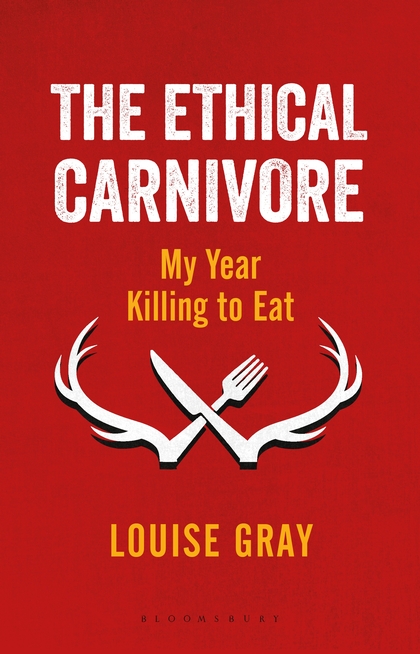
A lot fewer people would eat meat if they had to kill it themselves. Louise Gray kept hearing that, and she decided to put it to the test by eating only meat that she killed herself for a year. There are many food books that detail the author’s quest to eat (INSERT UNUSUAL FOOD HABIT HERE) for a year. And many of them are not very good, with some emphasizing the logistical difficulties and others making a diet of solely fried slugs sound like utopian paradise.
Gray manages to avoid the pitfalls and has written a book filled with emotion, humor and grace. And plenty of science. She details both the challenges and pleasures inherent in her adventures in livestock rearing, hunting and fishing. Along the way, she explores the complexities, environmental and humane concerns, and the apparent barriers to this lifestyle on a planet where most people live in cities.
I enjoyed her writing style, at once personal and insightful. She has a genuine curiosity about the world, and an empathy for the people she encounters on her journey. I have hunted all my life, and a lot of my family’s meat is from meat I’ve killed. But I still found myself consistently surprised at her conclusions and revelations. This is one of those books I wish I could put in the hands of both the hard-core carnivores and dedicated vegans. It’s a delight.
-
Eat the Beetles! An Exploration into our Conflicted Relationship with Insects
By David Waltner-Toews (ECW Press)
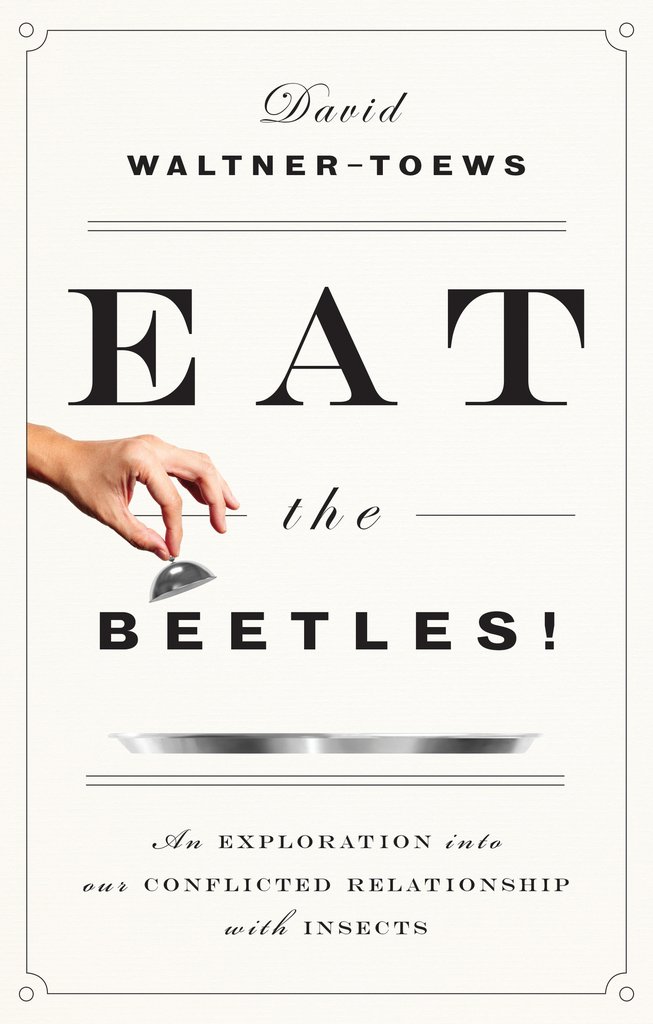
My love of trying new and bizarre foods, coupled with my career as a conservationist, means that I’m always on the lookout for unusual menu items that have an environmental benefit. This has led me to writing and speaking about the ecological benefits of eating guinea pigs (seriously) and invasive species, among others. I’ve also been forced to admit that, oftentimes, these choices are impractical at best.
Lately, insects have been promoted as a sustainable protein source, and I’ll own up to my usual infatuation. But will we really be serving crickets for dinner? Luckily, David Waltner-Toews is here to provide a scientifically rigorous examination of insects as food.
His approach begins by examining humanity’s long and mostly contentious relationship with insects, and he argues convincingly that we have to come to grips with this legacy before insects become a serious menu item. At times humorous, at times philosophical, Waltner-Toews undertakes a thorough dissection of the topic, exploring insects as food across cultures, reviewing legal and ethical concerns, addressing cultural and other barriers and more. There’s a lot of promise in having, say, crickets as an ingredient in energy bars, but there are also plenty of unintended consequences.
There’s nothing simple in Waltner-Toews’ conclusions, but it’s an essential and readable guide not just on insects, but on the challenges of “feeding the world.”
-
Razor Clams: Buried Treasure of the Pacific Northwest
By David Berger (University of Washington Press)
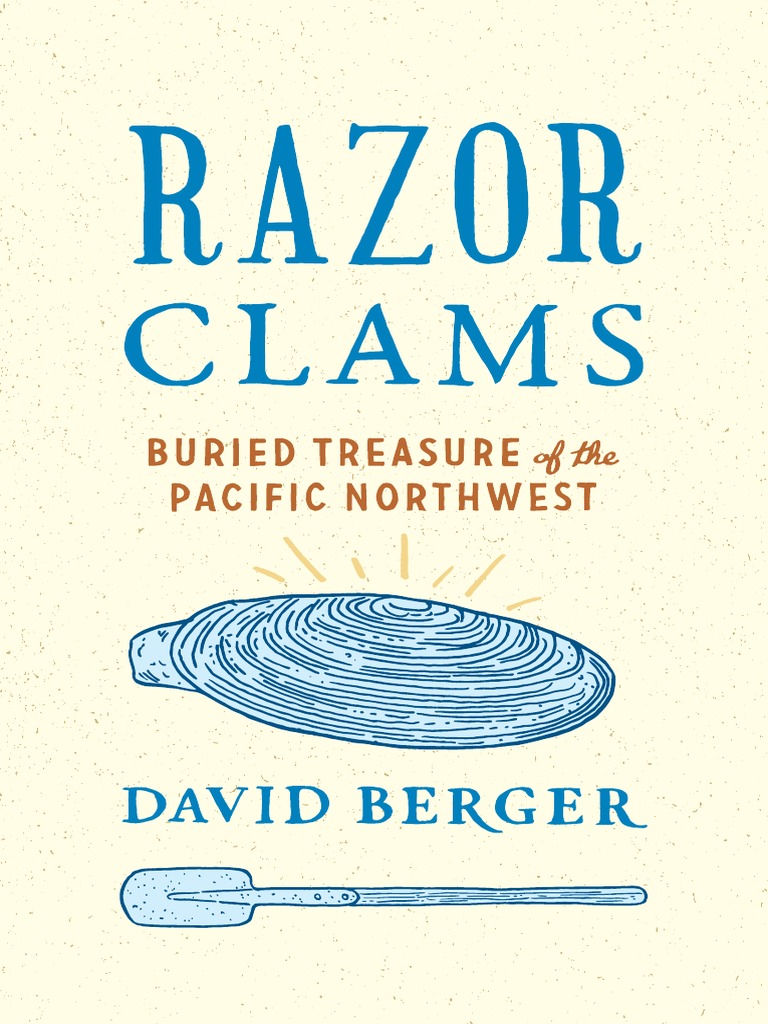
This book offers no prescriptions for saving the planet. It’s about the pursuit of a clam species found along a slice of the Pacific Northwest, primarily in Washington. But it’s an entertaining account, and guide, to the real fun of digging your own food in the beach.
Berger includes traditions, equipment, management and conservation, and recipes, as well as many personal stories in his life as a clammer. I don’t dig clams, but I’ll read anything about unique and sustainable ways of gathering wild food. I found myself envious of Berger as he follows the tides, and digs like a lunatic, in search of the perfect meal.
“Sustainable food” is often presented as an issue of providing calories while having the least environmental impact. I’d expand that definition. I want conservation to allow the space, and abundance, for people to enjoy procuring their own food, whether by gardening, livestock raising, hunting, foraging or digging clams. These are our true oldest professions, and remain among the greatest ways to connect with nature.
Berger’s book is an excellent testimony that gathering is still an enriching, fun and tasty pursuit. Long may it be so.
-
Pig Tales: An Omnivore’s Quest for Sustainable Meat
By Barry Estabrook (W.W. Norton and Company)
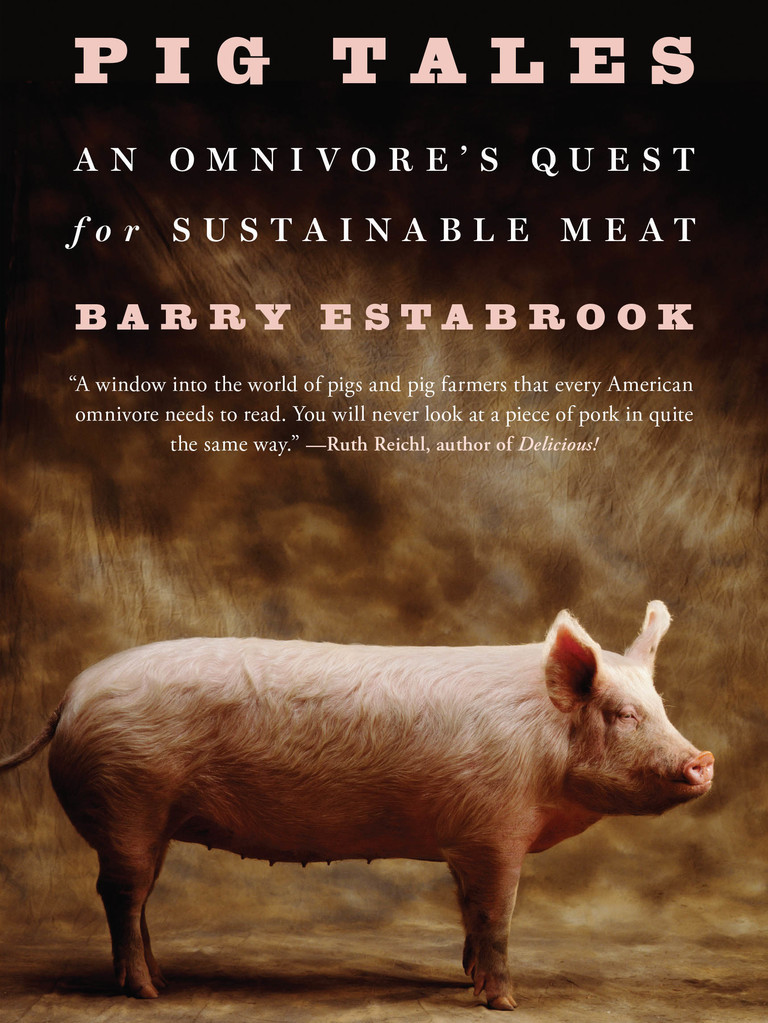
The three preceding books all, in their way, made me hungry. This one about made me lose my lunch. Barry Estabrook is often introduced as a food writer, but at his best, he’s today’s Upton Sinclair. Much of this book takes an investigative look inside the pork industry, including its treatment of animals and its employees, its considerable impact on its environment and neighbors, and the significant threat of its widespread use of antibiotics.
It will likely make you mad. It will likely make you sick. Estabrook goes inside the slaughter houses and confined pig farms. He visits with neighbors in bucolic countryside suddenly confronted with spilling lagoons of hog feces. He confronts the reality that hog farms are often located near communities that lack adequate resources or political representation to defend themselves.
Estabrook previously wrote Tomatoland, a rightly celebrated book about the abuses of the tomato industry, and how some companies even relied on what is essentially slave labor. This one is equally powerful, and reads like a page turner. We need more food writing like this. Actually we need more journalism like this, period.
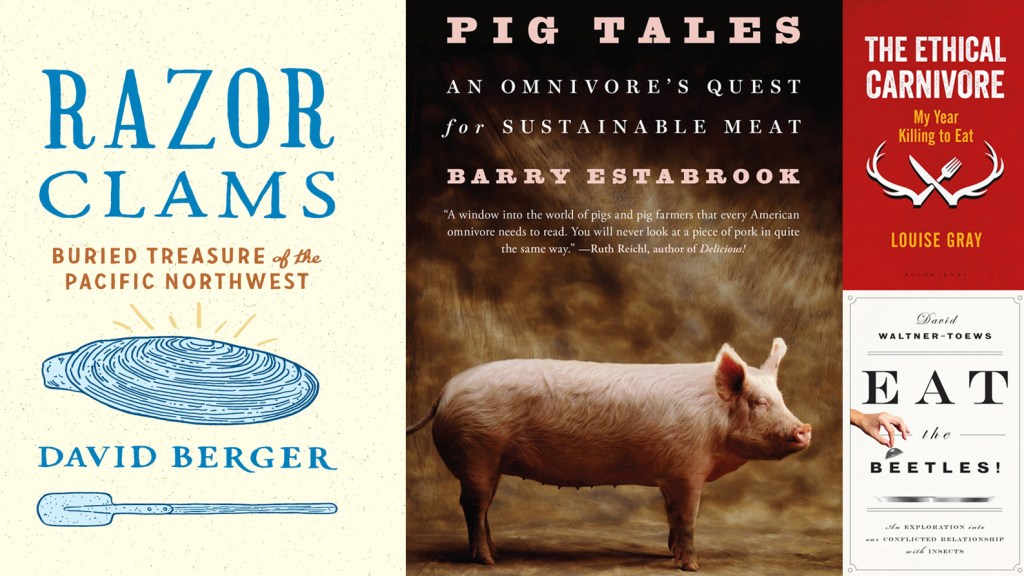



You seem to have intentionally gone with an animal theme here… a bit disappointed not to see more acknowledgment in an “eating and conservation” list that meat consumption is a major driver of carbon emissions and environmental destruction. The most sustainable protein comes from plants, and we probably *must* move toward plant-based diets in order to keep living on this planet with our growing numbers.